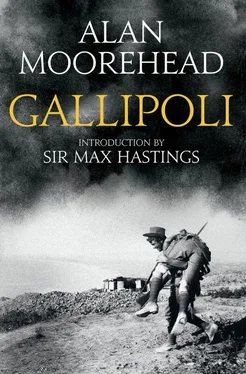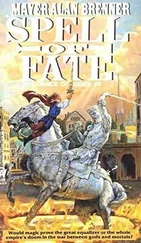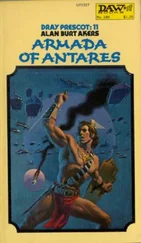To this theme Keyes returned again and again in later days, and it finally emerges in an unrepentant counter blast in the memoirs he published in 1934: ‘I wish to place on record that I had no doubt then, and have no doubt now — and nothing will ever shake my opinion — that from the 4th of April onwards the Fleet could have forced the straits and, with losses trifling compared with those the Army suffered, could have entered the Marmara with sufficient force to destroy the Turco-German Fleet.’
By 1934 Keyes was an Admiral of the Fleet and a great man in the world, with a fighting record that put him almost in the Nelson class. But in 1915 he was no more than an exceptionally promising young commodore, and he was no match for the steady conservatism of the Navy personified by de Robeck. De Robeck was no weakling — he was a kindly, firm, courageous and fair-minded man — but he had had his training and he was the one who bore the responsibility. That sudden flash of inspiration that will sometimes transport a commander past all the accepted rules of warfare into a field of daring that carries everything before it was perhaps lacking in the Admiral’s character, but he can hardly be blamed for that. His ‘no’ was a definite no; it only remained now to learn how London would view this change of plan.
Churchill says he heard the news with consternation. He told the Dardanelles Commission later: ‘I regarded it (the battle of March 18) as only the first of several days’ fighting, though the loss in ships sunk or disabled was unpleasant. It never occurred to me for a moment that we should not go on, within the limits of what we had decided to risk, till we had reached a decision one way or another. I found Lord Fisher and Sir Arthur Wilson in the same mood. Both met me that morning (March 19) with expressions of firm determination to fight it out.’
But now, on March 23, Churchill has a telegram from de Robeck saying that he will not move without the Army, and not for another three weeks. At once — and one can imagine with what pugnacity — Churchill sat down and drafted a telegram ordering the Admiral to ‘renew the attack begun on March 18 at the first favourable opportunity’. Then, convening a meeting of Fisher and the War Group at the Admiralty, he placed the telegram before them for their approval.
Describing this meeting, Churchill says: ‘For the first time since the war began, high words were used around the octagonal table.’ To Fisher and the other admirals it seemed that with de Robeck’s telegram the situation at the Dardanelles had entirely altered. They had been willing, they said, to support the purely naval attack so long as the admiral on the spot had recommended it. But now both de Robeck and Hamilton had turned against it. They knew the difficulties; they had the responsibility. To force them to attack against their own judgment would be entirely wrong.
Churchill could make no headway against these views though he appears to have argued with great energy that morning. When finally the meeting broke up without a decision he still persisted in his opinion. But it was evident that he was defeated. Asquith said that he agreed with Churchill, but he would not give the order against the advice of the admirals. De Robeck in a further exchange of telegrams proved immovable. At the Dardanelles the bad weather continued, and Hamilton went off with his staff to Egypt. In London Kitchener informed the War Council that the Army was now quite willing to take over from the Navy the task of opening the straits. With this there was nothing more to be said, and Churchill gave up at last. With good grace he sent off a message to de Robeck saying that his new plans had been approved.
A silence now settled on the Gallipoli peninsula: no ship entered the straits, no gun was fired. The Fleet lay at anchor in the islands. The first part of the great adventure was over.
‘The Turks belong to the Turanian race which comprises the Manchus and Mongols of North China: the Finns and the Turks of Central Asia.’
— Whitaker’S Almanac
‘The epithet popularly associated with the Turk in the English mind is “unspeakable”: and the inevitable reaction against the popular prejudice takes the form of representing the Turk as “the perfect gentleman” who exhibits all the virtues which the ordinary Englishman lacks. Both these pictures are fantastic… ’
Arnold Toynbee and
Kenneth P. Kirkwood in a study of Turkey written after the war.
ALTHOUGH they knew they had inflicted great damage on the Allied Fleet on March 18 it never occurred to the German and Turkish gunners on the Dardanelles that the Allied warships would not resume their attack on the following day. The men stood to their guns all through the morning of March 19, and when there was still no sign of the enemy they presumed that it was the gale that was preventing the ships from coming back. But the rough weather subsided and as day followed day without any sign of the Fleet their sense of dazed relief began to change into hope. By the end of the month this hope had developed into certainty.
There was one man in Constantinople who could claim that he had never been in the slightest doubt about this astonishing result. As early as February Enver had been saying to his friends in the capital that it was all nonsense; there was nothing to be afraid of, the enemy would never get through. In March he went down to the Dardanelles to watch the battle, and on his return he announced that the defences were absolutely solid; the gunners had plenty of ammunition, the minefields were intact. ‘I shall go down in history,’ Enver said, ‘as the man who demonstrated the vulnerability of the British Fleet. Unless they bring up a large army with them they will be caught in a trap. It seems to me a foolish enterprise.’ [7] Enver reversed this opinion after March 18. Some time later, when it was safe to do so, he admitted: ‘If the English had only had the courage to rush more ships through the Dardanelles they could have got to Constantinople.’
Since Enver’s military judgments in the past had been spectacularly unsound, few people, either among the diplomats or his colleagues, had been much reassured by this. Yet nothing could shake him. He confided to Morgenthau one day that when he was in England before the war he had seen many of the leading men — Asquith, Churchill and Haldane — and had pointed out to them that their ideas were out of date. Churchill had argued that England could defend herself with her Navy alone, and Enver had replied that no great empire could last that did not have an Army as well. Now here was Churchill sending his Fleet to the Dardanelles so that he could prove to Enver that he was wrong. Well, they would see.
Turning to the Ambassador at the end of this interview, Enver said seriously: ‘You know, there is no one in Germany with whom the Emperor talks as intimately as I have talked with you today.’
It was not entirely ridiculous. Already Enver was ruling as a dictator in the Ministry of War. No one dared to take a decision in his absence, and the oldest and most distinguished of politicians and generals were obsequious before him. He thought nothing of keeping the Sultan waiting half an hour or more at a ceremony or a parade, and even Wangenheim was becoming alarmed at the little colossus he had raised, especially when, after March 18, Enver’s position became more powerful than ever.
In the many histories of the Gallipoli campaign it is argued that the abortive naval attack on the Dardanelles was a cardinal error, not only because it failed but because it warned the Turks of the approaching invasion and gave them time to fortify the peninsula. This, as we shall see in a moment, was true enough; yet it seems possible that the political and psychological effect of March 18 was even more important. It was the Turks’ first victory for many years. Since the beginning of the century the country had never known anything but defeat and retreat, and they had grown used but not reconciled to the demoralizing spectacle of the refugees streaming back after nearly every battle. To take only one case out of millions, Mustafa Kemal’s mother had been forced to decamp from Macedonia, and he found her penniless in Constantinople. Salonika, the city in which he had grown up and which he regarded as Turkish by right, was now Greek.
Читать дальше












